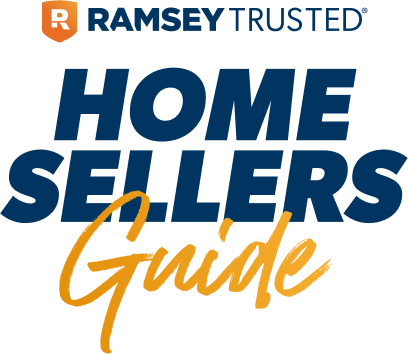
Make Sure You're Ready to Sell
Anytime the housing market heats up, it might be tempting to list your home. After all, if homes near you are selling like hot cakes—and for top dollar—maybe yours will too! But you shouldn’t base your decision to sell your home on market conditions—only your personal situation and finances should do that. What does that mean exactly? We’ll show you!
Top Signs You May Be Ready to Sell:
- You're debt-free with an emergency fund. If you’re selling your home, you’re probably buying a new one. If you've paid off all your debt and have three to six months of expenses in your emergency fund, that's a good sign you're financially secure enough to buy a home again.
- You can afford the costs. First, set aside enough money to get your home ready for staging. Next, consider the costs of your next home. Whether you're sizing up or down, make sure you can pay for your new house in cash or find a mortgage that fits your budget. If you’re going the mortgage route, stick to a 15-year fixed-rate conventional one (it has the lowest total cost) with a monthly payment that’s 25% or less of your monthly take-home pay. And don’t forget about closing costs and moving expenses!
- You're emotionally ready to sell. Check your emotions. Are you ready to leave the place where your family made memories? Are you committed to keeping your home ready to show for weeks or even months? Are you ready to hear the harsh reasons why potential buyers think your home isn’t perfect? If you can answer yes to these questions, then emotions won’t hold you back from selling your home.
- You have the best real estate agent. Selling your home by yourself or with an inexperienced agent could mean missing out on thousands of dollars (or more). If you want to sell with confidence and for the right price, connect with a RamseyTrusted® agent. We make it easy to find the best real estate agents in your area who share your values.
- Your home is worth more than you owe. Selling a home that’s worth less than you owe is a lousy deal. Breaking even on your home sale is better, but it's still not ideal. If you're in either situation, don't sell unless you need to avoid bankruptcy or foreclosure. (Not sure if your home is worth more than you owe? We’ll help you figure that out next.)

How to Know What Your Home Is Worth
Okay, obviously you’d like to know if your home will sell for enough money before planting a “for sale” sign in your yard. So, let’s do a little math to figure out how much you can expect to make by selling your home.
First, determine how much equity you have. Equity is how much of your home you actually own, as opposed to what your lender owns. To calculate equity, simply subtract your mortgage balance from the current market value of your home. If your home is worth $200,000 and you owe $120,000 on your mortgage, you’d have $80,000 in equity.
Market Value ($200,000) - Mortgage Balance ($120,000) = Home Equity ($80,000)
Now we need to factor closing costs into the equation since they also cut into your proceeds—aka the money you get to keep from the home sale. Typically, the biggest closing cost sellers pay is the agent commission (for example, 3% of the home’s sale price). In some cases, sellers might offer to cover part or even all of what it costs buyers to work with their agent to sweeten the deal, and to thank the buyer’s agent for helping find someone to purchase their home. But every situation is different. So be sure to discuss any specific rules related to this with your agent.
On top of the agent commission fee, the seller might also pay another 1–3% of the home’s sale price to cover the cost of taxes, transferring the title, and an attorney—or whoever helped the seller complete the sale.1
If we continue with our example, that means you might have to subtract as much as $18,000 from your proceeds to cover agent commissions and closing costs. That would leave you with $62,000, which you could put toward your next house.
Home Equity ($80,000) - Agent Commissions and Closing Costs ($18,000) = Sale Proceeds ($62,000)
That’s a pretty solid down payment for your next house. But you don’t want to work off a rough guess. Figuring out how much your home is worth is a job that calls for a pro!
A real estate agent knows firsthand what buyers are paying for similar homes in your area. Ask an experienced real estate agent for a free comparative market analysis (CMA) to make sure you’re working with accurate numbers. Hint: That’s not the only reason you’ll want to work with an agent—as you’ll find out next!


